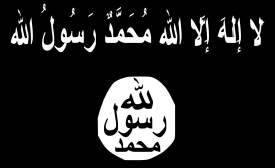counterterrorism
“Welcome to ISIS Land” was in some ways a breakthrough for the U.S. government after years of futility in attempting to compete with the propaganda of al-Qaeda and its off-shoots. The video became a viral phenomenon — viewed more than 844,000 times on YouTube — and a cause of significant irritation to its target. But the minute-long recording also became a flash point in a much broader debate over how far the United States should go in engaging with a barbaric adversary online.
On April 16, Singapore kicked off its inaugural East Asia Summit Symposium on Religious Rehabilitation and Social Integration, a counterterrorism meeting designed to share best practices — including Singapore’s own comprehensive approach — with like-minded states.
The current occupant of that office, Richard Stengel, acknowledges that "the ultimate battle is not on the military battlefield, it's in the information space." (...)The problem is that ISIS is very, very good at turning out highly professional video work. They are adept at using the right music to evoke the right mood and their grizzly executions take on an almost ethereal feeling.
Madison Avenue has helped the U.S. government fight everything from wartime foes to teen smoking. But now that Washington is locked in conflict with ISIS, a deadly enemy with sophisticated propaganda skills, adland seems very far from the front. Where are the country's best communications professionals during the propaganda battle of our time?
Progressives who believe that dialogues, conversations, engagements, conferences and summits are keys to pacifying the world have a peculiar solemnity about using certain words that are potentially insensitive. This mentality is perhaps especially acute in digitally drenched people who believe that Twitter and other social media have the power to tame turbulent reality.
The U.S. Department of State and USAID are supporting a wide range of programs and other initiatives to advance the themes of the White House Summit on Countering Violent Extremism (CVE), with particular attention to topics discussed during the February 19 ministerial meeting at the Department of State.
U.S. Undersecretary for Public Diplomacy and Public Affairs Richard Stengel said free information was the key to defeating Islamic State. (...) He said it was vital to stem the flow of foreign fighters heading to join militants in Syria.

Philip Seib makes the case for a new counterterrorism approach.







